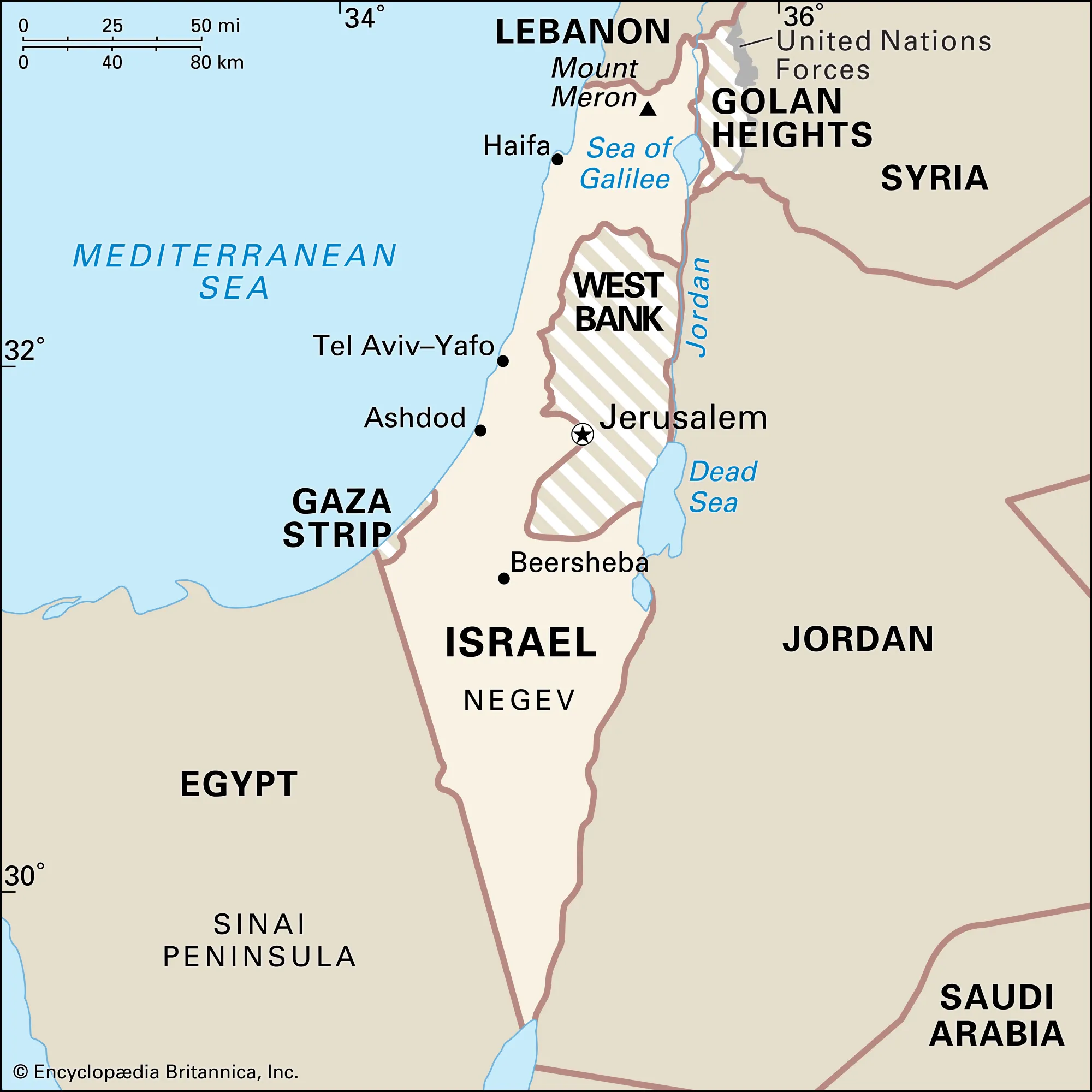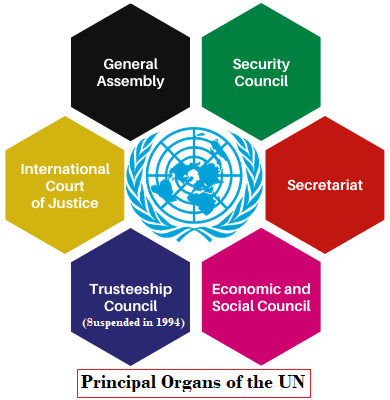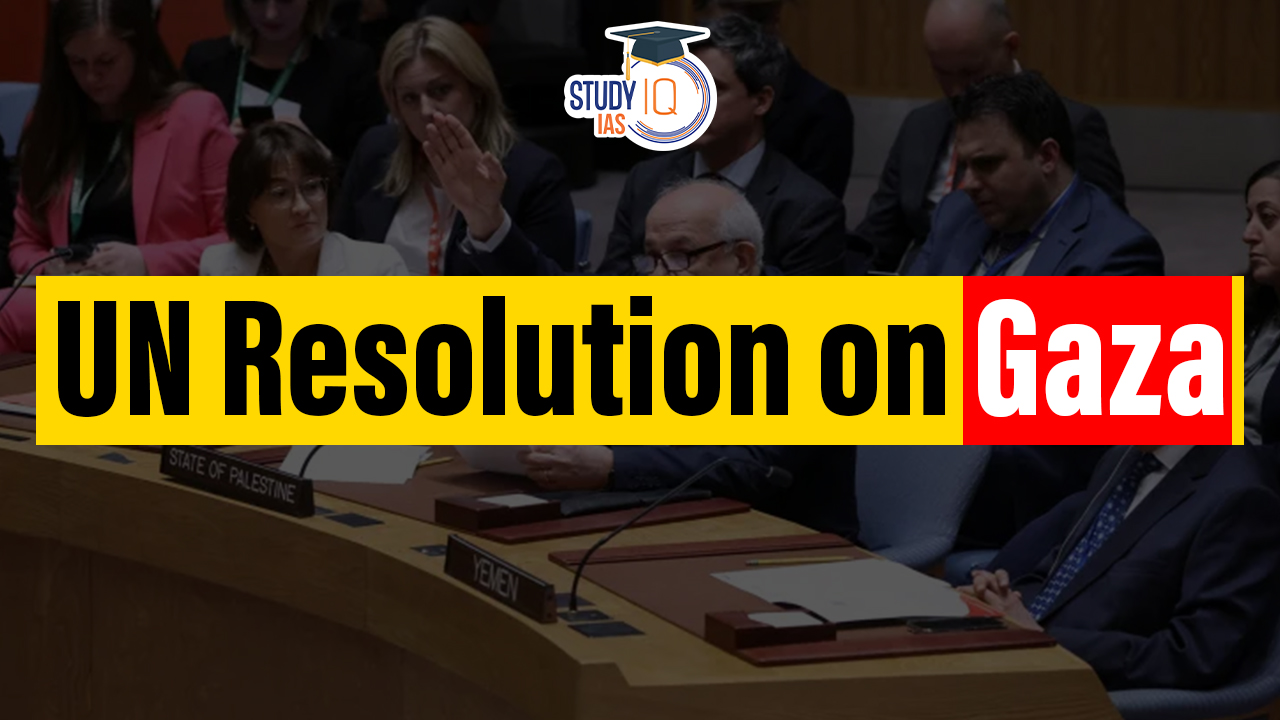Table of Contents
Context: The UN Security Council approved its first resolution endorsing a ceasefire aimed at ending the eight-month conflict between Israel and Hamas in the Gaza Strip.
More In News
- The resolution was overwhelmingly supported with 14 out of the 15 Security Council members voting in favour, while Russia abstained.
- The resolution demands that both Israel and Hamas fully implement the terms of the ceasefire immediately and unconditionally.
Background
- The UN Security Council for the first time has called for an immediate ceasefire in Gaza during Ramadan.
- The resolution was put forward by the 10 elected council members and is backed by Russia and China and the 22-nation Arab Group at the United Nations.
- The United States abstained on the resolution, which also demanded the release of all hostages taken captive during Hamas’ Oct. 7 surprise attack in southern Israel.
About Gaza Strip
- Location: Eastern Mediterranean basin,
- Borders: Egypt in the southwest
- Israel to the north and east.
- To the west, it is bounded by the Mediterranean Sea.

United Nations Security Council (UNSC)
- Established in: 1945
- Role: One of the United Nations’ five principal organs, responsible for maintaining international peace and security.
- Composition: 15 member states ( 5 permanent members (P5) with veto power + 10 non-permanent members).
-
- The 5 permanent members are the United States, the Russian Federation, France, China and the United Kingdom.
- The 10 non-permanent members are elected for two-year terms by the UNGA (United Nations General Assembly).
- These 10 seats are distributed among the regions of the world:
- five seats for African and Asian countries;
- one for Eastern European countries;
- two for Latin American and Caribbean countries; and
- two for Western Europe and Other Countries.

Powers and Functions of UNSC
- The UN Security Council’s primary function is to maintain international peace and security. It takes the lead in determining whether a threat to peace or an act of aggression exists.
- Aside from maintaining peace, the Security Council has the authority to send UN peacekeeping missions and impose sanctions on states.
- If necessary, the UN Security Council can also sever diplomatic relations, impose financial restrictions and penalties, blockades, and even collective military action.
| Election Process |
|
About the Veto Power of P5 Members
- The 5 permanent members have the power of veto.
- Under Article 27 of the UN Charter, Security Council decisions on all substantive matters require the affirmative votes of three-fifths (i.e., 9) of the members.
- A negative vote or a “veto” by a permanent member prevents the adoption of a proposal, even if it has received the required votes.
- Abstention is not regarded as a veto in most cases, though all five permanent members must vote for adopting any amendment of the UN Charter or any recommendation for the admission of a new UN member state.
- The decisions of the UNSC (known as resolutions) are binding on all members of the UN.


 Topological Materials: The Future of Qua...
Topological Materials: The Future of Qua...
 China’s Deep Sea Station in South Chin...
China’s Deep Sea Station in South Chin...
 Project ICE-CRUNCH: India-Switzerland Co...
Project ICE-CRUNCH: India-Switzerland Co...





















